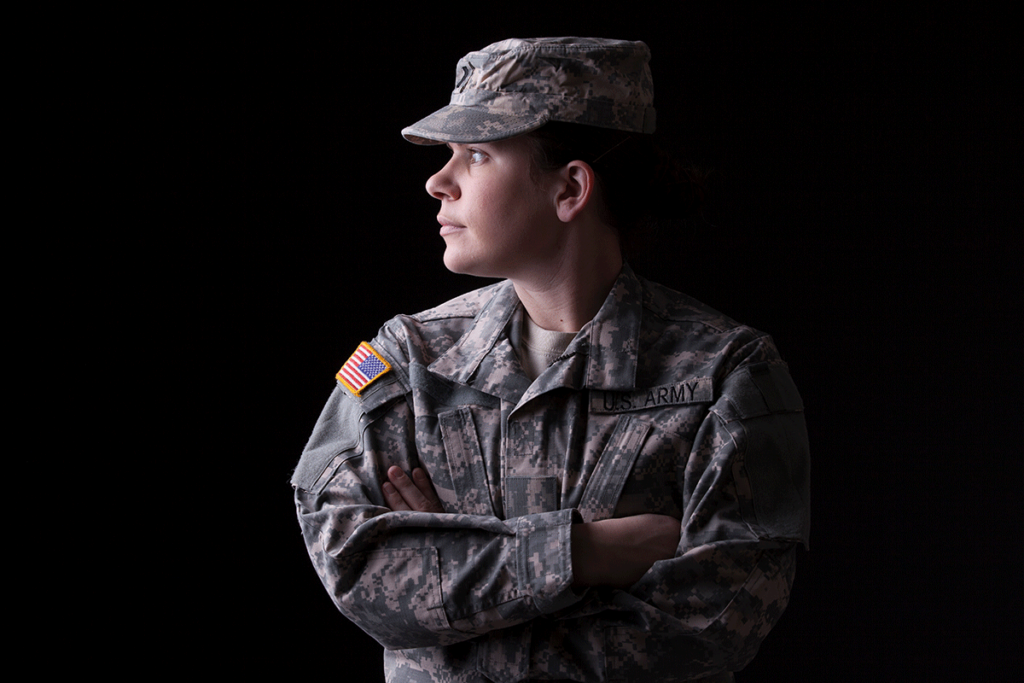Americans regard those who serve in our military highly, as we should. Their courage in serving as protectors of our nation and freedoms deserve our honor, respect, and gratitude. Their jobs are physically, mentally, and emotionally stressful, particularly for those who are or were in combat zones. Active-duty service members and veterans are at higher risk than the general population for developing substance use disorders (SUD) and mental health disorders. Veterans’ addiction treatment programs aim to address the unique needs of this population.
Vertava Health works with the VA to provide high-quality, compassionate care for active-duty military personnel and veterans. Our veterans’ alcohol rehab programs are comprehensive and offer co-occurring treatment commonly needed to address mental health issues, such as PTSD, that are frequently the source of problematic drinking. Call 844.470.0410 to learn how we can help you.
Veterans and Alcoholism: Why Are the Rates So High?
Veterans are at increased risk for alcoholism because of the nature of their military experiences. Exposure to trauma, chronic stress, physical health issues, injuries, chronic pain, and mental health disorders contribute to significantly high rates of alcohol abuse and addiction.
The Department of Veterans Affairs (VA) provides the following statistics:
- There are approximately 1.1 million veterans with substance use disorder (SUD)
- 65% of veterans entering rehab have alcohol use disorder (AUD), which is near twice the rate of civilians
- Approximately 11% of veterans who visit a VA clinic for the first time have SUD
- 1 in 4 veterans struggles with illicit drug abuse
- 4 in 5 veterans battle alcohol abuse
- 1 in 13 veterans struggles with both alcohol and drug abuse
- 1 of 10 veterans deployed to Iraq or Afghanistan is diagnosed with SUD
- 8 of 10 Vietnam veterans seeking PTSD treatment have AUD
Veterans’ alcohol abuse or addiction is often a result of untreated PTSD that developed from unresolved trauma they experienced in active duty. Stigma, a lack of insurance coverage, and a lack of access to resources and adequate care are significant barriers to treatment among veterans.
Many veterans turn to alcohol or drugs to relieve the symptoms of PTSD, anxiety, and depression. While self-medicating can appear to provide temporary relief, it ultimately worsens symptoms over the long run while increasing the risk of developing AUD or SUD.
The Military Culture and Alcohol Use
Drinking is a deeply rooted part of the military culture. Alcohol is readily available at discounted rates on military bases, which often have numerous long-established drinking rituals. Many service people view drinking as a way to bond with the other unit members, while others constantly feel pressured to drink to fit in or be accepted.
Active military members’ binge drinking and underage drinking rates are markedly higher than in the general population. Along with a culture that heavily promotes alcohol use, other significant causes of high rates of alcohol abuse in military life include the following:
- Age (a majority of active-duty military are males, 18 to 25)
- Combat deployment
- Exposure to trauma
- Stigma about seeking help
- Fear of the consequences of seeking help
- Pressure to conform
- Underlying, untreated mental health disorders
The nature of the work military members must perform significantly contributes to alcohol abuse which can lead to addiction—even those who do not see combat have highly active, strenuous, and stressful jobs. Usually, the drinking habits that develop during active duty carry over into civilian life.
Learn More About the Causes and Effects of Alcoholism on Veterans at Vertava Health
At Vertava Health, we’ve helped hundreds of veterans achieve recovery. We understand the unique needs of the veteran population and developed our veterans’ addiction treatment programs to meet these needs. Our comprehensive approach helps veterans recognize the causes and effects of alcoholism and guides them in acquiring the tools and skills to heal from trauma.
Treatment is split into three specific time frames:
- First 30 days – Understanding addiction
- 31 to 60 days – Coping skills
- 61 to 90 days – Life in recovery
If you are a veteran struggling with alcoholism, we can help. Our veteran’s addiction treatment program provides integrated, comprehensive dual diagnosis treatment in a supportive environment where veterans can connect with peers who can fully relate to their struggles. Contact Vertava Health at 844.470.0410 to talk with an admissions specialist today.


